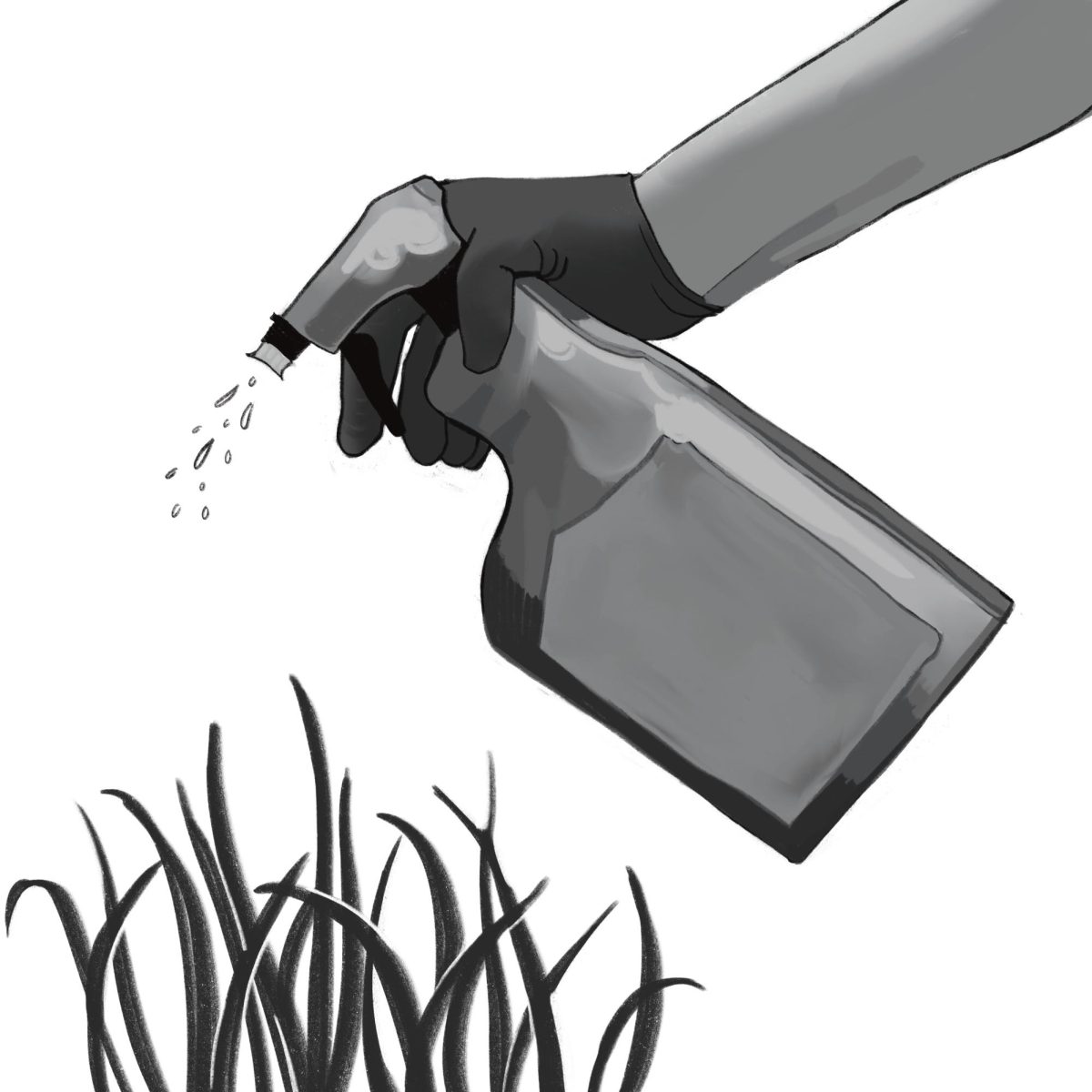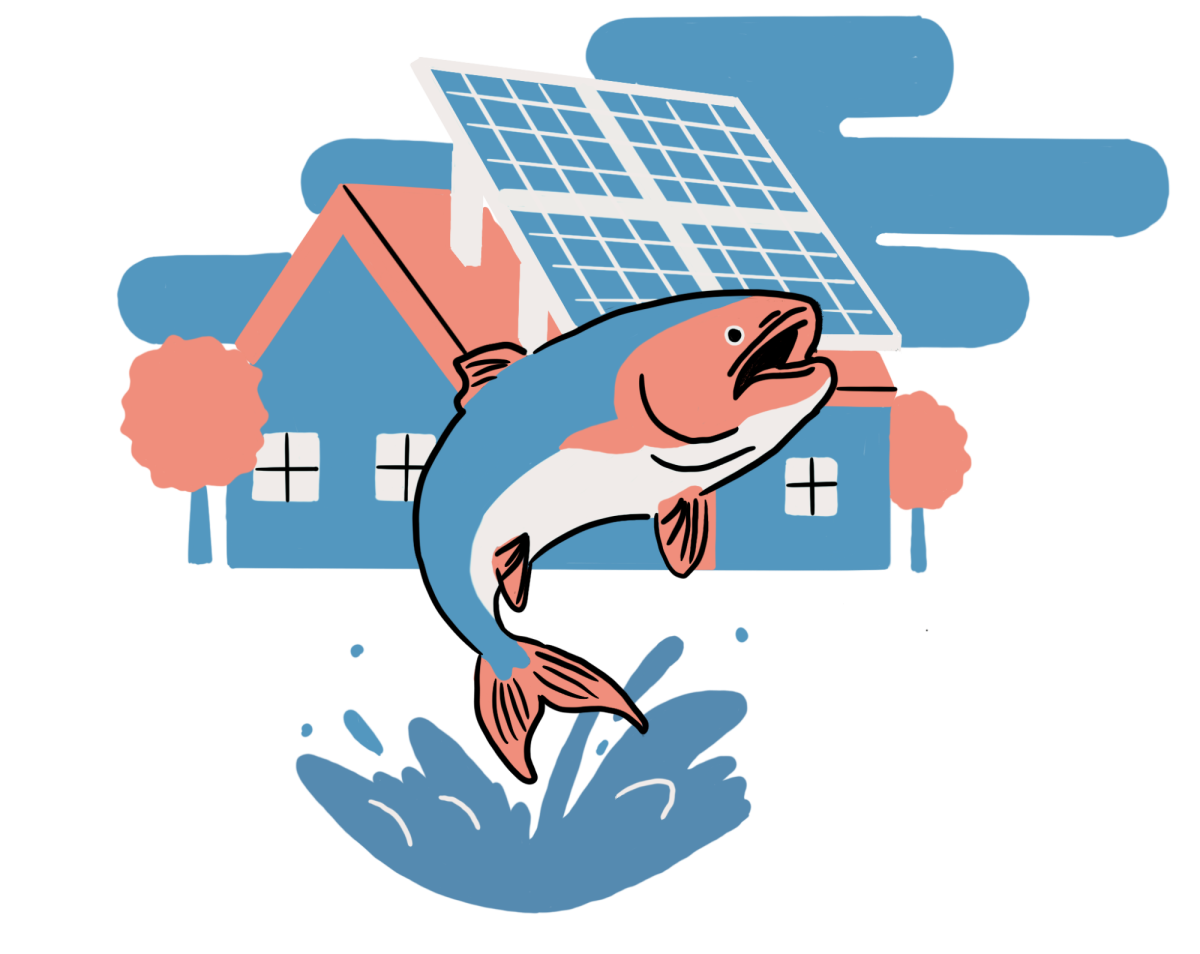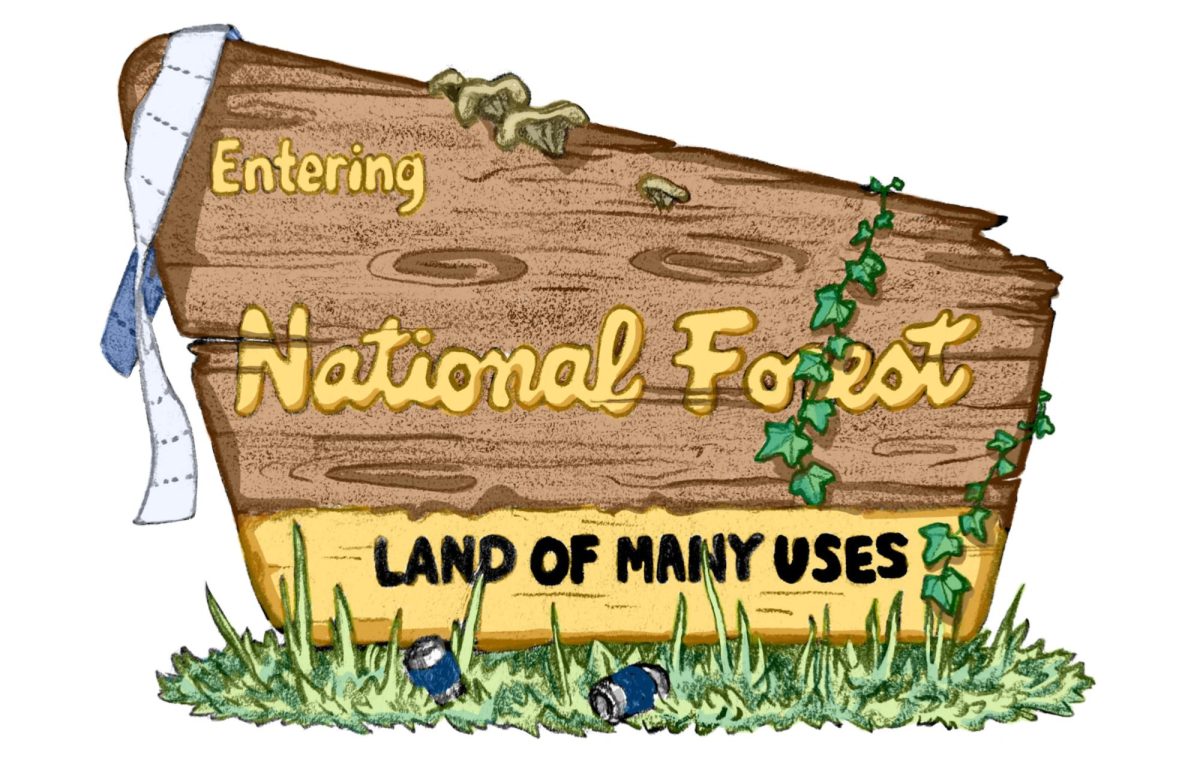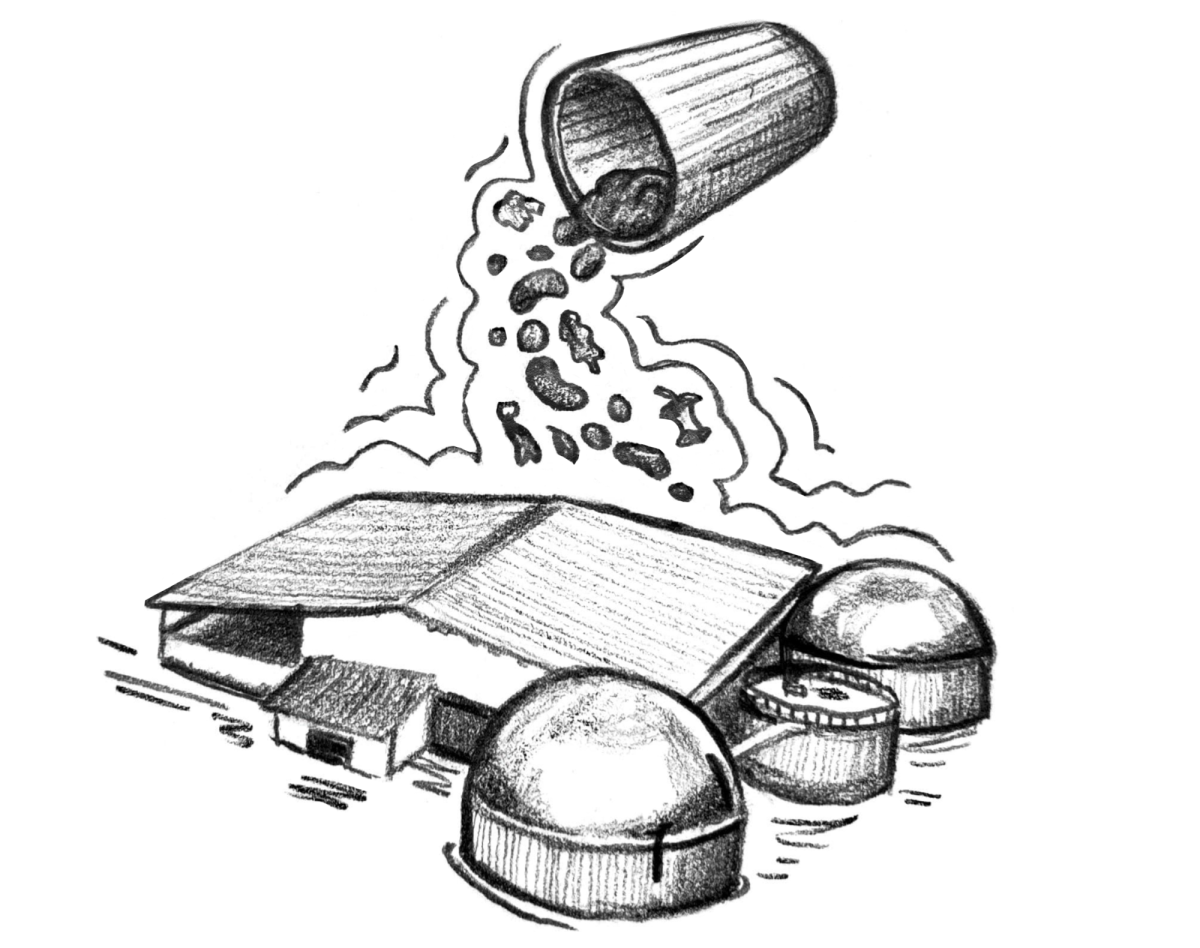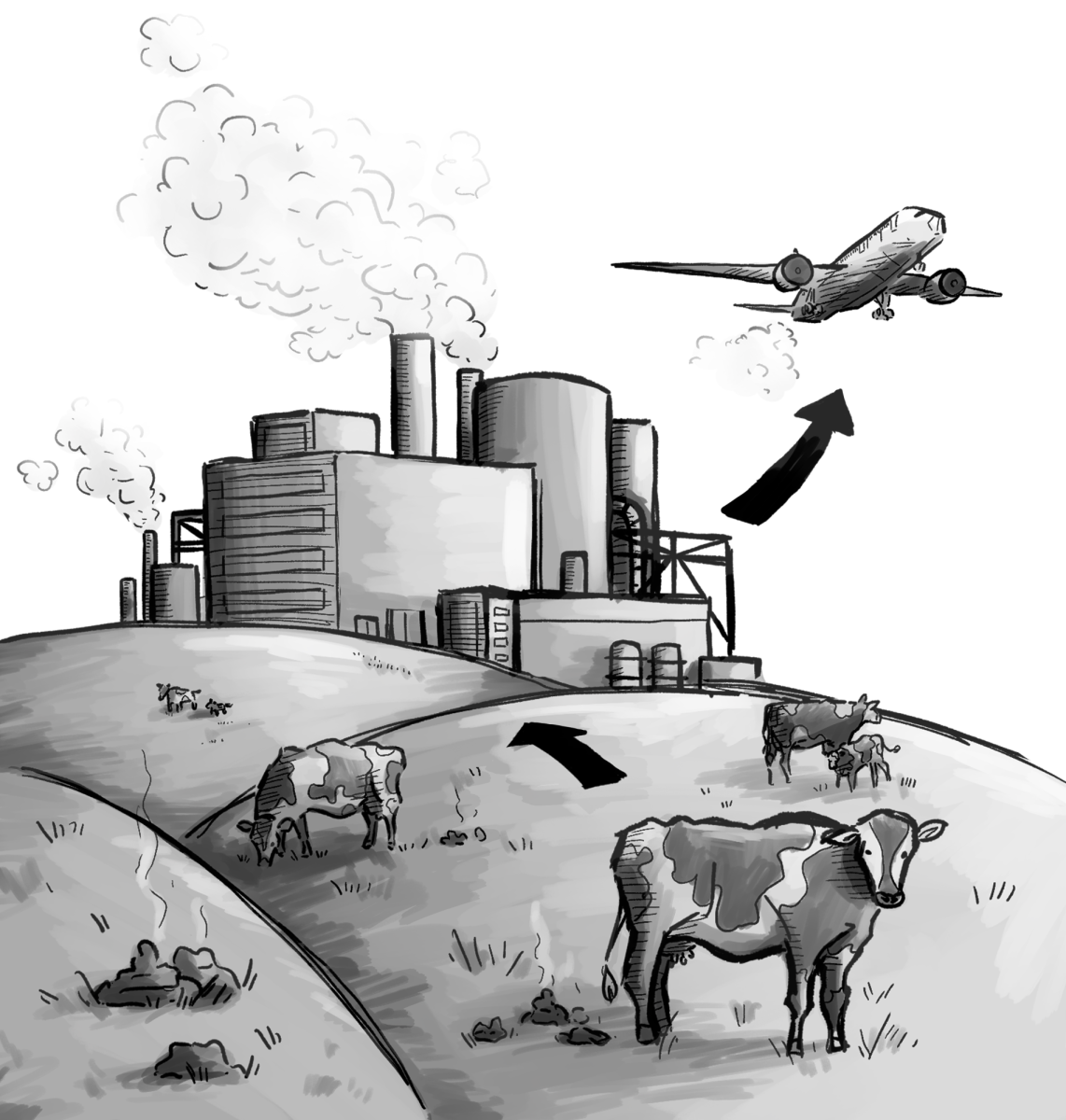
With course offerings like The Cultural and Literary Life of Rivers, Power, Pipelines and Dispossession, and Communism, Socialism and the Environment, the Whitman Environmental Studies program does not exactly position itself closely in relation to the cold world of Wall Street and finance. So when I encountered a poster on the bulletin board in Olin Hall advertising a lecture by O’Donnell Visiting Educator in Global Studies Jamie Workman titled “Save — No, Invest in — the Whales!” I was intrigued, and admittedly a little skeptical. A free market approach to whale conservation? I needed to learn more.
This is Jamie Workman’s second stint as a visiting educator at Whitman, the first one eight years ago in 2015. Workman is interested in breaking free from the “tragedy of the commons” and rebuilding our relationship to the natural world. In the classroom, he draws from a bureaucratic and entrepreneurial background that started in the Department of the Interior, took him to the World Commission on Dams with Nelson Mandela, and led to him starting his own business called AquaShares. The business is based on creating a free market system of water credits allowing people to buy, sell and lease water rights. The current outdated water rights system in the United States incentivizes some people and businesses to waste water. Workman saw an opportunity to flip the incentives and encourage a more conservation-oriented approach that saves people both money and water.
“When people start thinking of a resource as theirs, that they own, that the water they save isn’t just used by their neighbor to build a swimming pool or a golf course, then they start thinking about and start investing time and money in ways to save it just like you do with a house or a car,” Workman said.
Workman took the lessons he’s learned with water markets and applied them to other natural resources he’s interested in conserving, including whales. I joined the robust crowd gathered in Kimball Theater to learn more about these ideas. Workman started with an anecdote about a ship operated by the Sea Shepherds sinking after a collision with a whaling vessel. Even though the ship sinking represented a $2 million sunk cost, the director of Sea Shepherd said he would happily trade the ship for the life of one whale. Workman heard that and thought, if people donate millions of dollars to organizations like Sea Shepherd already, why don’t we make it possible for people to make that financial exchange to save a whale’s life?
This inspired the idea of “whale shares,” a free market system giving the whaling industry the opportunity to sell their catch quotas to environmentalists who would leave the whales in the ocean, and reward the marine industry for reducing whale deaths due to collision or entanglement. In return for these reductions, companies would receive “whale shares” they could sell for additional profit. In this system of buying and selling shares of individual whales, people interested in keeping whales in the ocean can compete with people harvesting the whales, tipping the scales to make living whales in the ocean more profitable than dead whales on shore.
Workman also demonstrated a myriad of other indirect economic benefits for keeping whales in the ocean. These benefits are known in the world of economics as externalities. Workman contended that in addition to the intrinsic value of a living whale, the animal has a tremendous ability to capture and sequester carbon through its life cycle.
“Whales feed at the bottom of the food pyramid. Phytoplankton, like all plants, convert sunlight into food, generating half of the world’s oxygen, and at the same time, trapping carbon. Feeding whales eat that and lock it into their tissue, this carbon-based plankton. While plankton and krill only live a few days, whales live for seven to eight decades, taking that carbon out,” said Workman.
Workman explained that rather than developing complicated carbon capture technology that costs billions for relatively little benefit, we should recognize that whales are already doing that work, and that has value as an investment.
I was having a hard time reconciling the proposal that a free market, like the one that was currently resulting in the demise of whales, could end up being their savior. I’ve been trained to look for ways to restrict the free market to reign in and punish the perpetrators of environmental harms, especially through laws like the Endangered Species Act or Clean Water Act. Financially compensating the whaling industry for no longer killing whales felt to me like the opposite of what should be happening, because the villain in this scenario walks away with a bag of money.
Tim Parker, Professor of Biology and Co-Chair of the Environmental Studies department, warned that this mindset might not be taking the whole picture into account.
“I think environmentalists in this country often have a fairly narrow scope of what they think of as acceptable and appropriate ways to save endangered species … the Endangered Species Act is sometimes described as the most powerful law protecting endangered species in the world, but I think [there] are really clear ways where it’s not ideal,” said Parker. “I think there’s a lot of incentives in place that are basically perverse incentives. You’ve got a policy to do this one thing and unfortunately it’s doing this other thing.”
Some of these environmentalists who have a narrow scope of what they deem appropriate end up in Workman’s classes. Workman does his best to help those students come to terms with how the free market might help rather than hinder the goals those students have for the environment.
“I had one of my students, she was great. She was just like, ‘capitalism sucks. I hate capitalism.’ I was like, ‘okay, but I’m intrigued by what this can do’ and she’s like ‘help me come to terms with this.’ So let’s say you’re a Marxist and you don’t like capitalism … What are the means of production in a forest, in fishery and so forth? Its nature. And you now own a share of nature,” said Workman.
I’m skeptical that my hypothetical purchase of a “share in nature” fulfills a Marxist ideal where workers own the means of production, but Workman’s point that becoming a participant and a “shareholder” in the processes of nature is important to consider. I would be profiting off of nature’s success, for example through a decrease in whale deaths or increased efficiency with water, rather than its destruction.
I’m still feeling conflicted about whether or not owning a share of a natural resource is beneficial to the broader environment. It’s important for Professor Parker, however, to let yourself be open to these tough questions and discussions.
“It’s not that I think that I’m pro-putting a price on whales, but if somebody’s willing to pay to protect the whales and the person who’s gonna kill the whales is willing to take the money, it’s not clear to me why you wouldn’t do that. If you think it’s undesirable somehow to do that, if you don’t have another way to protect the whales, what’s more important? Your principles or the whales?” said Parker.
If a system is broken and the predominant ideas for fixing it aren’t working, it’s worth exploring all options, even ones that might at first cause skepticism. Exploring that skepticism and making informed decisions is important, but so should be the desire to find success. At the end of the day, a whale protected by damaging a whaling vessel is living just the same as a whale that someone paid to protect. The arguments against buying shares of an animal are important and valid, but so are the lives of the whales that are saved as a result. Purchasing a share of the environment might sound off-putting, but if doing so results in more living whales, less water being wasted or other benefits for a new resource Jamie Workman targets in the future, it’s worth trying.

